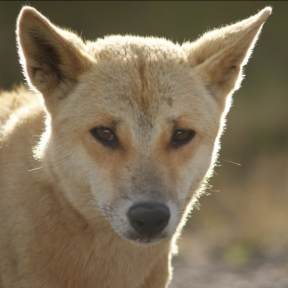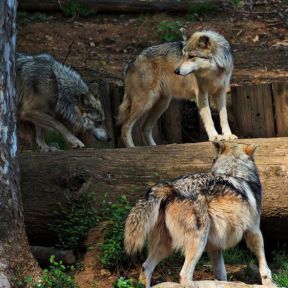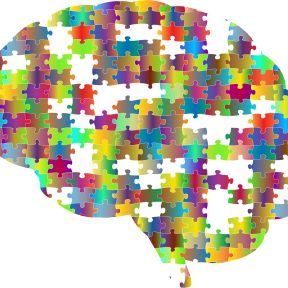
Nature vs. Nurture
The expression “nature vs. nurture” describes the question of how much a person's characteristics are formed by either “nature” or “nurture.” “Nature” means innate biological factors (namely genetics), while “nurture” can refer to upbringing or life experience more generally.
Traditionally, “nature vs. nurture” has been framed as a debate between those who argue for the dominance of one source of influence or the other, but contemporary experts acknowledge that both “nature” and “nurture” play a role in psychological development and interact in complex ways.
Contents

The wording of the phrase “nature vs. nurture” makes it seem as though human individuality—personality traits, intelligence, preferences, and other characteristics—must be based on either the genes people are born with or the environment in which they grew up. The reality, as scientists have shown, is more complicated, and both these and other factors can help account for the many ways in which individuals differ from each other.
The words “nature” and “nurture” themselves can be misleading. Today, “genetics” and “environment” are frequently used in their place—with one’s environment including a broader range of experiences than just the nurturing received from parents or caregivers. Further, nature and nurture (or genetics and environment) do not simply compete to influence a person, but often interact with each other; “nature and nurture” work together. Finally, individual differences do not entirely come down to a person’s genetic code or developmental environment—to some extent, they emerge due to messiness in the process of development as well.
A person’s biological nature can affect a person’s experience of the environment. For example, a person with a genetic disposition toward a particular trait, such as aggressiveness, may be more likely to have particular life experiences (including, perhaps, receiving negative reactions from parents or others). Or, a person who grows up with an inclination toward warmth and sociability may seek out and elicit more positive social responses from peers. These life experiences could, in turn, reinforce an individual’s initial tendencies. Nurture or life experience more generally may also modify the effects of nature—for example, by expanding or limiting the extent to which a naturally bright child receives encouragement, access to quality education, and opportunities for achievement.
Epigenetics—the science of modifications in how genes are expressed—illustrates the complex interplay between “nature” and “nurture.” An individual’s environment, including factors such as early-life adversity, may result in changes in the way that parts of a person’s genetic code are “read.” While these epigenetic changes do not override the important influence of genes in general, they do constitute additional ways in which that influence is filtered through “nurture” or the environment.

Theorists and researchers have long battled over whether individual traits and abilities are inborn or are instead forged by experiences after birth. The debate has had broad implications: The real or perceived sources of a person’s strengths and vulnerabilities matter for fields such as education, philosophy, psychiatry, and clinical psychology. Today’s consensus—that individual differences result from a combination of inherited and non-genetic factors—strikes a more nuanced middle path between nature- or nurture-focused extremes.
The debate about nature and nurture has roots that stretch back at least thousands of years, to Ancient Greek theorizing about the causes of personality. During the modern era, theories emphasizing the role of either learning and experience or biological nature have risen and fallen in prominence—with genetics gaining increasing acknowledgment as an important (though not exclusive) influence on individual differences in the later 20th century and beyond.
“Nature versus nurture” was used by English scientist Francis Galton. In 1874, he published the book English Men of Science: Their Nature and Nurture, arguing that inherited factors were responsible for intelligence and other characteristics.
Genetic determinism emphasizes the importance of an individual’s nature in development. It is the view that genetics is largely or totally responsible for an individual’s psychological characteristics and behavior. The term “biological determinism” is often used synonymously.
The blank slate (or “tabula rasa”) view of the mind emphasizes the importance of nurture and the environment. Notably described by English philosopher John Locke in the 1600s, it proposed that individuals are born with a mind like an unmarked chalkboard and that its contents are based on experience and learning. In the 20th century, major branches of psychology proposed a primary role for nurture and experience, rather than nature, in development, including Freudian psychoanalysis and behaviorism.

Modern scientific methods have allowed researchers to advance further in understanding the complex relationships between genetics, life experience, and psychological characteristics, including mental health conditions and personality traits. Overall, the findings of contemporary studies underscore that with some exceptions—such as rare diseases caused by mutations in a single gene—no one factor, genetic or environmental, solely determines how a characteristic develops.
Scientists use multiple approaches to estimate how important genetics are for any given trait, but one of the most influential is the twin study. While identical (or monozygotic) twins share the same genetic code, fraternal (or dizygotic) twins share about 50 percent of the same genes, like typical siblings. Scientists are able to estimate the degree to which the variation in a particular trait, like extraversion, is explained by genetics in part by analyzing how similar identical twins are on that trait, compared to fraternal twins. (These studies do have limitations, and estimates based on one population may not closely reflect all other populations.)
It’s hard to call either “nature” or “nurture,” genes or the environment, more important to human psychology. The impact of one set of factors or the other depends on the characteristic, with some being more strongly related to one’s genes—for instance, autism appears to be more heritable than depression. But in general, psychological traits are shaped by a balance of interacting genetic and non-genetic influences.
Both genes and environmental factors can contribute to a person developing mental illness. Research finds that a major part of the variation in the risk for psychiatric conditions such as autism spectrum disorder, anxiety disorders, depression, and schizophrenia can be attributed to genetic differences. But not all of that risk is genetic, and life experiences, such as early-life abuse or neglect, may also affect risk of mental illness (and some individuals, based on their genetics, are likely more susceptible to environmental effects than others).
Like other psychological characteristics, personality is partly heritable. Research suggests less than half of the difference between people on measures of personality traits can be attributed to genes (one recent overall estimate is 40 percent). Non-genetic factors appear to be responsible for an equal or greater portion of personality differences between individuals. Some theorize that the social roles people adopt and invest in as they mature are among the more important non-genetic factors in personality development.














